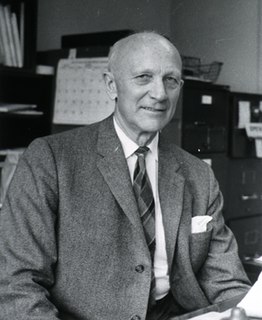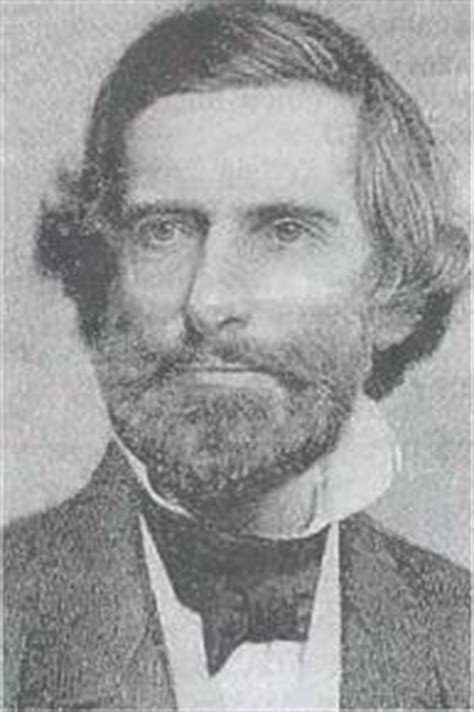A Quote by Samuel Johnson
The imaginations excited by the view of an unknown and untravelled wilderness are not such as arise in the artificial solitude of parks and gardens... The phantoms which haunt a desert are want, and misery, and danger; the evils of dereliction rush upon the thoughts; man is made unwillingly acquainted with his own weakness, and meditation shows him only how little he can sustain, and how little he can perform.
Related Quotes
Wilderness appealed to those bored or disgusted with man and his works. It not only offered an escape from society but also was an ideal stage for the Romantic individual to exercise the cult that he frequently made of his own soul. The solitude and total freedom of the wilderness created a perfect setting for either melancholy or exultation.
How much wilderness do the wilderness-lovers want? ask those who would mine and dig and cut and dam in such sanctuary spots as these. The answer is easy: Enough so that there will be in the years ahead a little relief, a little quiet, a little relaxation, for any of our increasing millions who need and want it.
When your little child tells a lie, do not rush at him as though the world were about to go into bankruptcy. Be honest with him. A tyrant father will have liars for his children; do you know that? A lie is born of tyranny upon the one hand and weakness upon the other, and when you rush at a poor little boy with a club in your hand, of course he lies.
In spite of all these disquieting triumphs in the field of natural science, it's astonishing how little man has learned about himself, and how much there is to learn. How little we know about this brain which made social evolution possible, and of the mind. How little we know of the nature and spirit of man and God. We stand now before this inner frontier of ignorance. If we could pass it, we might well discover the meaning of life and understand man's destiny.
Everybody needs beauty as well as bread, places to play in and pray in, where Nature may heal and cheer and give strength to body and soul alike. This natural beauty-hunger is made manifest in the little window-sill gardens of the poor, though perhaps only a geranium slip in a broken cup, as well as in the carefully tended rose and lily gardens of the rich, the thousands of spacious city parks and botanical gardens, and in our magnificent National parks — the Yellowstone, Yosemite, Sequoia, etc. — Nature's sublime wonderlands, the admiration and joy of the world.
Pathology has made us acquainted with a great number of states in which the boundary lines between the ego and the external world become uncertain or in which they are actually drawn incorrectly. There are cases in which parts of a person's own body, even portions of his own mental life - his perceptions, thoughts and feelings -, appear alien to him and as not belonging to his ego; there are other cases in which he ascribes to the external world things that clearly originate in his own ego and that ought to be acknowledged by it.
When Satan cannot get a great sin in he will let a little one in, like the thief who goes and finds shutters all coated with iron and bolted inside. At last he sees a little window in a chamber. He cannot get in, so he puts a little boy in, that he may go round and open the back door. So the devil has always his little sins to carry about with him to go and open back doors for him, and we let one in and say, 'O, it is only a little one.' Yes, but how that little one becomes the ruin of the entire man!
In his scientific genius, man has wrought material miracles and has transformed his world. He has harnassed nature and has developed great civilizations. But he has never learned very well how to live with himself. The values he has created have been predominantly materialistic; his spiritual values have lagged far behind. He has demonstrated little spiritual genius and has made little progress toward the realization of human brotherhood. In the contemporary atomic age, this could prove man's fatal weakness.
The soldier, above all other men, is required to perform the highest act of religious offering-sacrifice. In battle and in the face of danger and death he discloses those divine attributes which his amke gave when he created in his own image. No physical courage and no brute instincts can take the place of the divine annunciation and spiritual gift which will alone sustain him.
Man is made of opinions,—of truth and error; and his life is a warfare like all other lives before him.... Man goes on developing error upon error till he is buried in his own belief.... It is the office of wisdom to explain the phenomena in man called disease, to show how it is made, and how it can be unmade. This is as much a science as it is to know how to decompose a piece of metal.
This is your heritage,' he said, as if from this dance we could know about his own childhood, about the flavor and grit of tenement buildings in Spanish Harlem, and projects in Red Hook, and dance halls, and city parks, and about how his own Paps, how he had beat him, how he taught him to dance, as if we could hear Spanish in his movements, as if Puerto Rico was a man in a bathrobe, grabbing another beer from the fridge and raising it to drink, his head back, still dancing, still steeping and snapping perfectly in time.






































